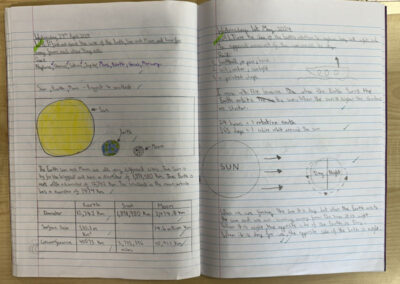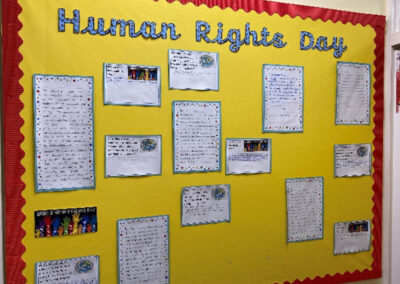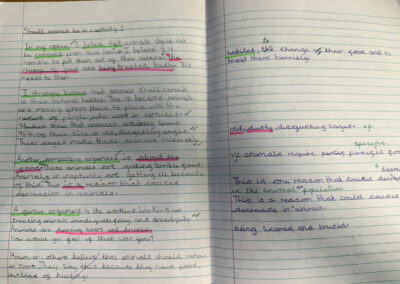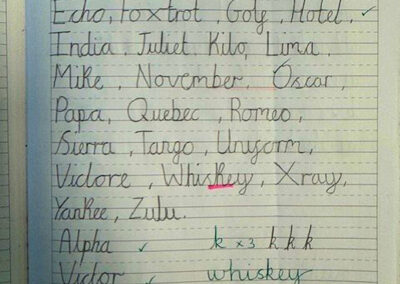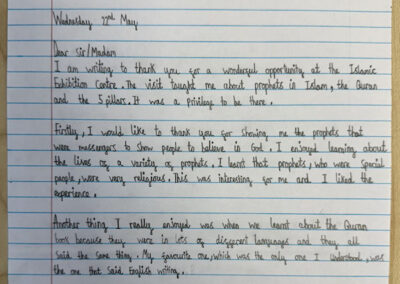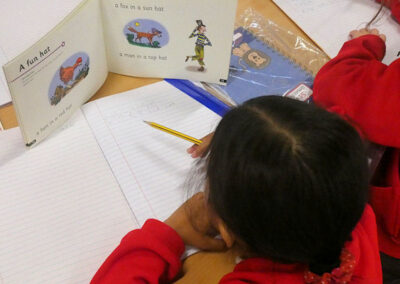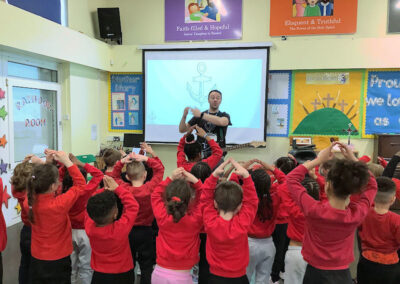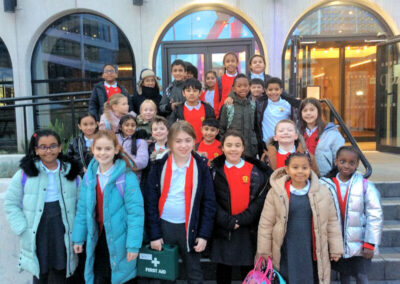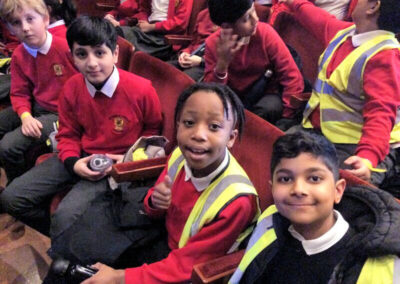Writing
Writing Intent
It is our intention at St Mark’s that every child will be a competent and enthusiastic writer for a variety of different purposes, using grammar and punctuation accurately. They will be able to use rich language developed from their wide range of reading to ensure the text types meet the needs of the audience that is intended.
What our Children Say…
“My handwriting is getting much better, Miss said I try really hard. I am trying hard to join now.” – Arihan
“I love it when George comes to school. We get to sing songs about SPAG. The noun song is good – it’s about a person, a place or a thing.” – Chioma
“My handwriting is getting much better.” – Piort
“I am really enjoying reading and writing about Harry Potter.” – Caitlin
Writing in the Early Years
In our Reception class, we engage and encourage children to develop their fine and gross motor skills, their mark making and their writing skills.
The indoor and outdoor learning environments and activities and resources provided to children support them to become motivated and confident writers. Adults in the early years model writing in a range of ways to children and children are encouraged to write during play and in focused/whole class activities. Children are taught the basics of writing (how to hold a pencil and correct letter formation), they are given opportunities to practise their writing skills and then apply their writing skills to a range of writing forms.
Some of the opportunities for mark making/writing we provide for our children in the Early Years include: Signs, menus (role play café/take away), labels, prescriptions (role play doctor/vet), cards, order forms (role play builders), letters, food orders (role play café/take away), postcards, stories and books, jokes, notes, invitations, poetry, messages, tickets, receipts, recipes, maps, posters, sign up sheets, shopping lists, bills, captions, registers, diaries, instructions driving licences and score sheets.
Handwriting
We use Letter-Join as our Handwriting scheme. This scheme is systematic in its approach to teaching handwriting. It starts with developing gross motor skills in Reception and then moves onto letter formation and then onto joining. Children have daily handwriting sessions. We regularly assess children on their pencil grip and formation of letters. Interventions are put in place for those who require it.
Spelling
Children in KS1 and KS2 have a weekly spelling test and a spelling lesson. Spelling lessons focus on learning spelling rules. Our spelling lessons compliment Phonics lessons.
Writing in KS1 and KS2
Children in KS1 and KS2 use a wide range of texts at their stimulus for writing which have been carefully mapped out to ensure coverage and exposure to a range of different texts and authors. Each half term, children will write a range of fiction, non-fiction and poetry. Teachers plan exciting immersion lessons to begin each unit of writing and teach them the skills that they will need to write each text type.
Extra Opportunities
Children at St. Mark’s have taken part in many Writing competitions with a number of our children being published in a book! They have written for a range of purposes which include: stories, poems and non-fiction texts.
Children are given many opportunities to write for real purpose. These include writing letters to our local MP, writing letters of thanks for our visit to the Islamic Centre and letters to Grove Court.
We have also had the opportunity to work with George from Anchor Education. He has visited our school on a number of occasions to hold different SPaG Workshops. We always love it when he is in school.
Children in Year 4, 5 and 6, also visit local theatres to watch a range of plays. Year 4 went to the REP to watch a performance of the Lion the Witch and The Wardrobe.
Children in Year 5 went to Belgravia Theatre to watch Fantastically Great Women.


